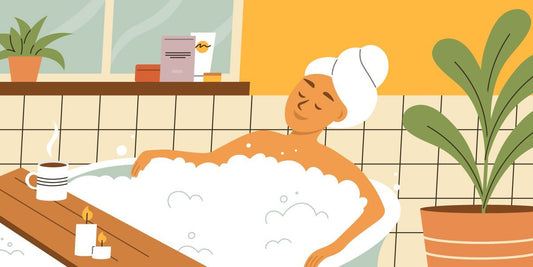Skin provides a protective barrier against you and the outside world. It is made up of various components, each performing a different, yet essential function. Perhaps the most important component is the skin barrier. Not only does it keep your skin hydrated and looking its best, but it also keeps the skin healthy.
What exactly is the skin barrier and how does it work? More importantly, what can you do to keep it protected? Here, we provide a skin barrier crash course.
What is the Skin Barrier?
Your skin is essentially made up of three layers:
- epidermis (top layer)
- dermis (middle layer)
- hypodermis (bottom layer)
Each layer performs different functions to protect your overall body. The outermost layer is your skin barrier, also called the stratum corneum. Without it, harmful components can enter the body and cause serious harm.
What Does it Do?
The skin barrier has so many vital roles, it would seem simpler to ask what doesn’t it do. To simplify its duties, scientists have boiled it down to three primary responsibilities:
- Protect the body from external stressors, like UV rays and pollutants.
- Retain water to prevent the body from dehydrating (without the skin barrier, the water inside the body would evaporate).
- Help with the transportation of key nutrients to the skin.
Protecting your body is probably its greatest role, as experts believe that environmental stressors are responsible for most visible signs of aging. Of course, as we naturally age, this plays a big role in the appearance of fine lines, wrinkles, and sagging skin. Nevertheless, if skin concerns exist, it’s a strong possibility that your skin barrier isn’t at prime capacity.
How to Strengthen Your Skin Barrier
It would be impossible to completely prevent damage to your skin barrier, but there are ways to protect it. Follow these dermatologist-approved and recommended instructions.
Manage Harmful Irritants
UV rays, pollution, and UV light from screens are what we mean by harmful irritants. Even overusing skincare products, such as AHAs in exfoliators, or dry exfoliating with brushes can be harmful.
Your goal should be to manage how much harm is done over time. For example, wear sunscreen when you go out during the day – no matter what the season. Create a skincare routine with protective ingredients that can fortify the skin against pollution. And of course, don't overuse skincare products no matter how beneficial they are.
Keep a Simple Skincare Routine
You don’t need a 12-step skincare routine to achieve impeccable, glassy skin. In fact, there are three essential products you should incorporate:
- Cleanser
- Moisturizer
- Sunscreen
These three products can do a world of good for your skin. Nevertheless, adding other products, such as coffee exfoliators and eye creams are also beneficial. Keep your routine simple and take the “less is more” approach. That way, you are less likely to incorporate products that are harmful to your skin or may strip away essential oils.
Seek out Soothing Ingredients
If you think your skin barrier is already damaged, look for soothing ingredients to apply to the skin. For example, don’t buy just any moisturizer – look for ones that contain ingredients like niacinamide, which promotes healing. Vitamin E oil is another soothing ingredient, which is common in creams and moisturizers. We also recommend serums with hyaluronic acid, which helps retain moisture.
Go Easy on Skincare Procedures
If you’re the type to get micro-needling, chemical peels, laser treatments, or other in-office procedures to prevent wrinkles, you may want to rethink that. Some dermatologists say this can, in fact, harm the skin barrier. For example, micro-needling requires puncturing the skin, which is temporarily damaging.
While the damage is minor, you'll need to be careful about what you do as your body heals itself. Otherwise, you may exacerbate the damage. We aren’t saying you should stop doing these procedures altogether, but we recommend having them done in moderation.











